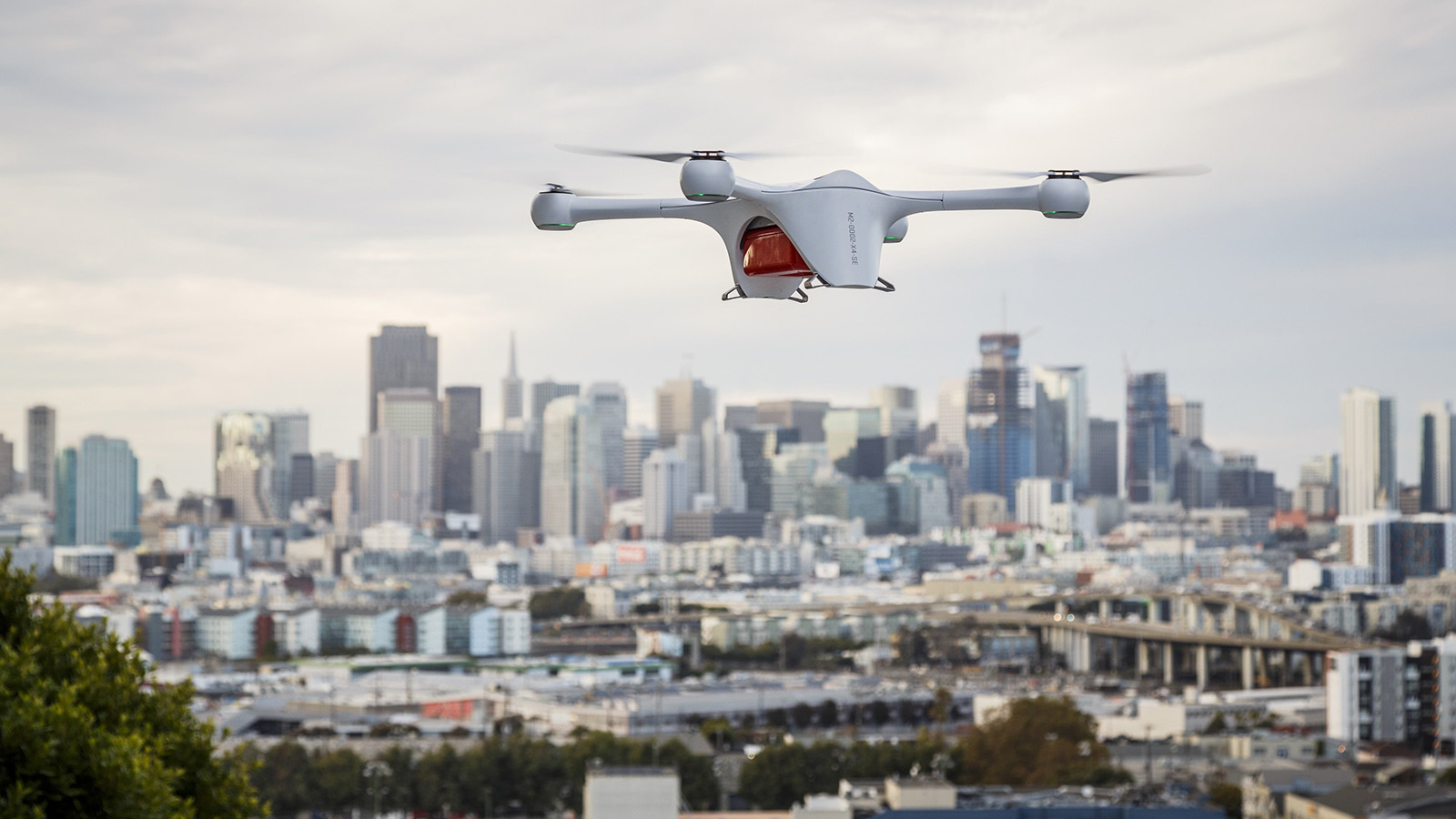Stay Up to Date
Submit your email address to receive the latest industry and Aerospace America news.
Matternet manufactures M2 drone for deliveries in health care, other industries
Now that California drone company Matternet has what it believes to be the first FAA type certificate for a delivery drone, the company is expanding production of its electric, largely autonomous quadcopters.
With the type certificate awarded in September, Matternet’s customers and partners can now fly them without an FAA exemption to the type certificate rule, provided the customer or partner has a Part 135 operator certificate. That also means the company does not have to worry about the scheduled sunset of the exemption rule next September.
To learn more details about Matternet’s plans following this breakthrough, I interviewed CEO and founder Andreas Raptopoulos via videoconference from his office in Mountain View near San Francisco.
Could the technology underlying its M2 drones be relevant to development of air taxis, most of which are also electric aircraft and propelled by rotors? Raptopoulos doesn’t see much of a link, given that an M2 weighs just 9.5 kilograms without cargo, or about as much as a car tire.
“We haven’t had deep technical conversations with those in the AAM passenger market. I have met some of the founders and CEOs, of course, but we are in a different class, a lightweight aircraft, so I think they have to carve out their own road,” he says.
More important in Raptopoulos’s view is that the type certificate has positioned Matternet to build on the deliveries of medicines and health care supplies it has carried out over the last three years. Those deliveries were done under an exemption allowed by Section 44807 of the federal regulations, and in partnership with UPS, which has a Part 135 certificate. UPS has delivered cargo weighing under 2 kilograms in North Carolina and Florida suburbs with the M2 drones.
“At a basic level, our new certification allows us to continue operating with UPS, and it will allow us to start operating with other Part 135 partners,” Raptopoulos tells me. One of those he’s particularly interested in is Ameriflight, a cargo airline based near Dallas that today flies chemotherapy drugs and ingestible radiation therapy sources to customers aboard small, conventional propeller planes.
Financial details of Matternet’s project with UPS have not been disclosed, and the company says it does not comment on specific costs associated with its drone manufacturing. But the company is now focused on affordability as it increases production at its Mountain View production center and company headquarters, Raptopoulos says.
He says Matternet’s 44807 exemption only occurred after a “rigorous process of evaluation” whereby FAA allowed drone flights with strict conditions.
“The FAA generally limits how close you can get to people or buildings and property, and if you can overfly people who are not part of the operation,” Raptopoulos says. “We have been able to serve real customers in North Carolina and Florida, and now in Switzerland, and really show how this works in urban environments because of the exemptions, and now we can continue that work with our type certification.”
He adds that the M2 has a relatively low noise profile and that “noise acceptance is crucial for drone delivery” success in urban areas and also in rural areas.
Matternet and Raptopoulos describe the M2 as “autonomous,” but Raptopoulos emphasizes that many safety tools, such as automated “see and avoid” cameras, are built in. So far, the flights have been conducted with operators monitoring the flights, ready to take over if needed, he says.
Health and medical supplies make the most sense for early operations because “willingness to pay” for prompt, tailored delivery is high, he says.
“The business model doesn’t get more high-impact than health care because it’s not about delivering shoes or a pizza, it’s a patient that you’re serving,” Raptopoulos says.
Get the latest news about advanced air mobility delivered to your inbox every two weeks.
About paul brinkmann
Paul covers advanced air mobility, space launches and more for our website and the quarterly magazine. Paul joined us in 2022 and is based near Kennedy Space Center in Florida. He previously covered aerospace for United Press International and the Orlando Sentinel.
Related Posts
Stay Up to Date
Submit your email address to receive the latest industry and Aerospace America news.




